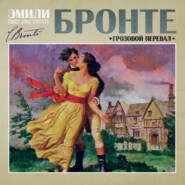По всем вопросам обращайтесь на: info@litportal.ru
(©) 2003-2025.
✖
Fame and Wuthering Heights
Автор
Год написания книги
2019
Настройки чтения
Размер шрифта
Высота строк
Поля
‘Be my guest,’ said Tish, passing him the phone with a nonchalance she was far from feeling. ‘When you’re finished, I’ll fill them in on your thefts of my family property. I might ask them to bring over a few sniffer dogs while they’re at it. Although I doubt they’ll need them. They can just follow the trail of needles.’
Dan looked up, his face white as a sheet. ‘Leave it,’ he whispered, through gritted teeth. The pain was clearly excruciating. ‘Just get me to A and E. Get the others and let’s get the fuck out of here before she kills someone.’
Tish watched as his friends scooped him up off the floor, staggering under his weight as they carried him out of the room. Once they’d gone, she bolted the drawing-room door behind them and waited, Henry’s shotgun still in her hand. There were muffled noises of a commotion upstairs. After about ten minutes, Tish heard the last door slam. Looking out of the window, she saw a straggling group of eight men and women climb into their dilapidated camper van and drive off, spraying gravel noisily behind them in their eagerness to get away. It was only once they’d gone and the rumble of the van’s engine had faded into silence that Tish realized her hands were shaking violently.
Forcing herself to calm down, she unlocked the door and walked upstairs, checking each room to make sure that no one was left hiding or passed out on one of the beds. If it were possible, the squalor upstairs was even worse than it was in the rooms below. Drug-related detritus littered the beds and floors, along with filthy clothes and sheets, and plates covered in rotting food. Bastards. Only once she was convinced they had all gone did Tish carefully replace her father’s gun in the closet, lock it, and go back downstairs to check on Abel.
She found him in the kitchen, along with a visibly shaken Mrs D. And three policemen.
‘There she is!’ cried Mrs Drummond. ‘Oh, Letitia, thank goodness you’re safe! What happened? We heard the shots.’
‘Is everything all right, Miss Crewe?’ The senior policeman stepped forward. ‘Was anybody injured?’
‘Everything’s fine, officer,’ said Tish calmly, scooping Abel up into her arms and kissing him. ‘I’m sorry to have troubled you. There was an accident I’m afraid. One of our unwanted visitors managed to break into my father’s gun closet. I arrived in the drawing room to find him fiddling about with one of the shotguns. Damned fool. Before you knew it the thing went off and he’d managed to shoot himself in the foot. He’s on his way to A and E now. His friends took him in their camper van. I have a sneaking feeling they won’t be back.’
The policeman raised an eyebrow. He was no fool. ‘I see. And that’s the same story he’s going to be telling us, is it? The injured gentleman?’
‘Well, of course,’ said Tish, flashing him her best, butter-wouldn’t-melt smile. ‘Although I’m not sure gentleman’s the word I’d use.’
‘And where is the weapon now, miss?’
‘The gun? Oh, I put it back in the cupboard, officer, safely locked away. I didn’t want to leave it lying around for my son to find.’ Sensing this was his time to shine, Abel fluttered his eyelashes at the policeman and clung tightly to his mother, the picture of innocence.
‘Would you like to see it?’
The policeman sighed. He’d had a long day. Unless the squatter actually reported a crime, there was no official need for him to inspect the weapon.
‘Not for the moment, miss,’ he said. ‘I’ll be in touch if there’s anything else we need.’
Later that night, once Abel and Mrs Drummond were both in bed, Tish sank down into the Chesterfield chair in her father’s old office and poured herself a much-needed glass of single malt.
What a day.
Despite Mrs D’s flat-spin panic about the shooting, Tish had not been worried that Dan and his friends would spill the beans to hospital staff, or the police. They had too much to lose. If there was one thing wasters like them valued above all others, it was an easy life. As of today, Loxley Hall had become more trouble than it was worth to them. They wouldn’t be back.
The bad news was that the quid pro quo for their silence about her trigger-happy antics would be that Tish could not now report them for criminal damage. She would have to find the money to make the necessary repairs and replacements herself. But, after a cursory glance at the estate’s latest accounts, it was hard to see how that was going to happen. As a going concern, Loxley was losing money hand over fist. Most stately homes did. That was why you needed tenants, and/or a professional company to manage them. Had Tish’s mother Vivianna done what was expected of her and put such arrangements in place, instead of handing the place to Jago on a silver platter, they wouldn’t be in this mess.
It wasn’t just the practical and financial recklessness of her mother’s decision that had upset Tish. It also stung that Vivianna had deliberately cut her out of any possible inheritance. Secretly, Tish had hoped she might take over at Loxley one day, once her work in Romania was done. The estate meant far more to her than it ever had to Jago.
‘But darling,’ Vivianna told her at Henry’s funeral, ‘you’ve been so occupied with those waifs and strays of yours. I didn’t think you’d be interested. Besides, the house would always have passed to Jago if he and your father hadn’t fallen out. It’s not right that Henry should be able to spite the boy from beyond the grave.’
But it’s OK for you to spite me from this side of the grave? thought Tish furiously.
Behind Henry’s desk, on the largest expanse of wall in the room, hung an enormous, framed photograph of Vivianna, stark naked. It had been taken in the Sixties, at the height of her youthful beauty, and mercifully had been tastefully done (Vivi had her back half turned to the camera, so only her perfect, peach-shaped bottom and half of a breast were visible). But it still had to go.
You left us, Tish thought bitterly. You left all of us. What right do you have to be up on that wall, with your glossy black hair and your enchanting smile and your sultry black eyes, a female version of Jago?
Vivianna Crewe had abandoned both her children, but it was only Jago that she’d ever missed. At least, that was how Tish saw it. Maybe handing over Loxley was her way of trying to make amends to him?
Whatever her motives, there was nothing Tish could do about it now. Her job was clear: to repair the estate, rescue it from total financial ruin, and then walk away and leave it all to Jago, until the next time he fucked up. It was a bitter pill to swallow, but she had no choice. Unless of course Jago really did spend the rest of his life as a sworn celibate in a Tibetan cave. In which case perhaps, one day, Abel could inherit as the next male in line.
But she was getting ahead of herself. Right now it was by no means certain that there would be an estate to inherit, for her children or Jago’s. The squatters were gone, but the real work started now. They had to cut back. First thing in the morning, Tish would turn the heating off. They could all wear lots of sweaters.
On Henry’s desk, her BlackBerry buzzed into life. It was a BBM, from Michel. Involuntarily, Tish’s heart rate shot up.
‘How was it? As bad as you thought?’
‘Worse,’ she texted back. ‘You still in Paris?’
‘Yes. Miss you.’
Not as much as I miss you, thought Tish, her stomach lurching with hope. Did he really miss her? He’d never said anything like that before. Then another message came through. Reading it, Tish felt a skewer being pushed slowly through her heart.
‘Met someone-Tell you all about it when I see you. Xoxo’
Tish turned off her phone in a daze. Depression washed over her. Without even registering what she was doing, she unscrewed the top of the whisky bottle, poured herself another and drank it. Her throat burned, but she didn’t care.
Michel had met someone. Someone who wasn’t her. Someone who deserved him. Tish tried to picture such a woman.
She’s probably a supermodel. Or a brain surgeon. You’re nothing to him, she told herself cruelly. Just some silly girl with a crush.
Closing her eyes, she offered up a heartfelt prayer.
Please, God. Let me get over him.
In the cold, empty house, the silence was deafening.
CHAPTER SEVEN
Dorian Rasmirez’s production company, Dracula Pictures, had offices on the top floor of number 9000 Sunset Boulevard, an iconic tower block marking the borderline between Beverly Hills and West Hollywood.
Parking her silver Mercedes convertible on Doheny Drive, Sabrina Leon sauntered into the building, followed by her usual shoal of ratzies, like a whale trailing pilot fish.
‘Name?’ asked the surly clerk on the front desk.
‘You know who I am,’ Sabrina snapped back.
She was right, the clerk did know who she was. But, like most African Americans, he loathed her with a passion bordering on the murderous. ‘Name,’ he repeated, baldly.
‘Look, asshole, I don’t have time for this, I’m late. Now buzz me up to Dracula, there’s a good boy.’
If looks could kill, Sabrina would have dropped dead on the spot.
‘I am not your “boy”.’
Oh, shit. Wasn’t there a word left in the English language that didn’t have racial overtones? ‘That’s not what I meant.’
‘No? Well what I mean is you can either write your name on the visitors’ list, like eeeeeverybody else–’ the clerk spoke slowly, as if he were talking to a retarded child –, ‘or you do not step into that elevator. Next.’ And to Sabrina’s fury, he turned his attention to the man behind her.

















